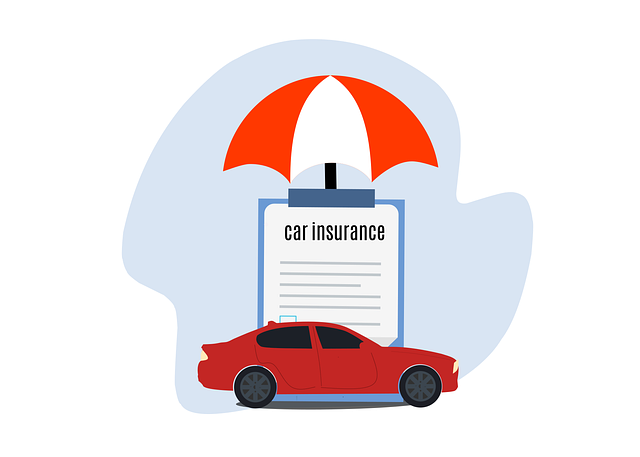Employment Practices Liability Insurance (EPLI) serves as a vital shield for businesses against employee-related lawsuits stemming from discrimination, harassment, wrongful termination, and disputes over non-compete agreements. By covering legal fees, settlement costs, and damages, EPLI helps manage risks, enabling companies to navigate complex laws without fear of significant financial repercussions. The claim process involves receiving official notice, gathering documents, responding to allegations within a set timeframe, and seeking resolution through negotiations or legal channels. Exclusions and limitations in EPLI policies should be understood, with common exclusions including fraud, willful misconduct, and discrimination. Effective risk management includes fostering a culture of compliance, establishing internal reporting mechanisms, keeping detailed records, and regularly reviewing employment policies to align with current laws and regulations.
Employment Practices Liability Insurance (EPLI) protects businesses from costly lawsuits arising from employee claims related to hiring, firing, discrimination, and more. As workplace laws evolve, understanding EPLI becomes crucial for employers to mitigate risks. This article delves into the intricacies of EPLI, exploring common claims, the claim process, coverage triggers, policy exclusions, and best practices to manage employment-related risks effectively. Discover how EPLI can serve as a vital shield for your business.
- Understanding Employment Practices Liability Insurance (EPLI)
- Common Causes of EPLI Claims
- The Claim Process and What to Expect
- When Is EPLI Coverage Triggered?
- Exclusions and Limitations in EPLI Policies
- Best Practices for Employers to Manage Risks
Understanding Employment Practices Liability Insurance (EPLI)

Employment Practices Liability Insurance (EPLI) is a type of coverage designed to protect businesses against financial loss resulting from employee-related lawsuits. These lawsuits can arise from various employment practices, including discrimination, harassment, wrongful termination, and more. EPLI provides a safety net by covering legal fees, settlement costs, and damages awarded to employees who successfully sue the company for these issues.
Having EPLI is crucial for businesses as it helps them manage the risks associated with employee misconduct or unfair labor practices. It allows companies to navigate complex employment laws and regulations, ensuring they can make informed decisions without fear of significant financial repercussions. In today’s legal landscape, where employment disputes are common, EPLI acts as a vital shield, enabling businesses to focus on growth and operations rather than potential litigation costs.
Common Causes of EPLI Claims

Employment Practices Liability Insurance (EPLI) claims arise from various workplace situations, each with its own unique circumstances. Some of the most common causes include discrimination and harassment complaints, where employees allege unfair treatment based on race, gender, age, disability, or other protected characteristics. Wrongful termination suits are another frequent trigger, with claimants arguing that their dismissal was unjustified or in breach of contract.
In addition, employment contracts often contain non-compete agreements, which can lead to disputes if an employee believes these clauses are overly restrictive or unfairly enforceable. Further, failure to properly investigate and address internal complaints about colleagues or supervisors can result in claims related to a hostile work environment. EPLI is designed to protect businesses against these and other employment-related liabilities by providing financial coverage and legal defense during the claims process.
The Claim Process and What to Expect

When an employment-related lawsuit is filed against your business, navigating the claim process can be complex and stressful. But understanding what to expect can help ease anxiety. The initial step involves receiving official notice of the claim and gathering relevant documents, including any policies or contracts that may apply. This phase is crucial for Employment Practices Liability Insurance (EPLI) claims as it helps establish coverage and policy limits.
As the process unfolds, you’ll be responsible for responding to the plaintiff’s allegations within a specified timeframe. This typically includes filing an answer or a motion to dismiss, depending on the circumstances. Legal representatives specializing in EPLI claims will guide you through this phase, ensuring all necessary information is submitted accurately and timely. The goal is to resolve the claim efficiently; settlements may be reached through negotiations or, if unsuccessful, the case could progress to arbitration or trial.
When Is EPLI Coverage Triggered?

Employment Practices Liability Insurance (EPLI) coverage is triggered when an employee or former employee files a claim alleging illegal employment practices. These claims often center around discrimination, harassment, wrongful termination, and other violations of state or federal labor laws. The key trigger for EPLI is the existence of a lawsuit or legal action against the insured business, asserting these employment-related wrongdoings.
Once such a claim is made, the insurance company evaluates the validity and merit of the allegation based on the specific facts and circumstances surrounding the incident. If found valid, the EPLI policy kicks in to provide legal defense costs and potential financial compensation to the insured business, protecting them from significant liabilities that could arise from employment practices lawsuits.
Exclusions and Limitations in EPLI Policies

Employment Practices Liability Insurance (EPLI) policies typically come with various exclusions and limitations that policyholders should be aware of. These clauses delineate situations where the insurance does not provide coverage, ensuring a clear understanding of the scope of protection. Common exclusions include claims arising from fraud or willful misconduct by the insured, as well as those related to discrimination, harassment, or other employment-related civil rights violations.
Another significant limitation is that EPLI usually covers only after an employment-related claim is filed and not during the investigation stage. This means that if an employer suspects a potential violation and conducts its own internal probe, any costs incurred during this period may not be covered by the insurance. Additionally, policy limits and deductibles vary widely, so employers should carefully review these aspects to ensure adequate protection based on their specific needs and potential exposure to employment-related claims.
Best Practices for Employers to Manage Risks

To effectively manage risks associated with Employment Practices Liability Insurance (EPLI) claims, employers should adopt best practices that foster a culture of compliance and respect for employee rights. Regular training sessions for all staff on workplace policies and procedures related to hiring, firing, discrimination, and harassment are essential. This includes clear communication about expected behaviors and consequences for violations. Establishing robust internal reporting mechanisms encourages employees to come forward with concerns without fear of retaliation, which is crucial for early identification and resolution of potential issues.
Additionally, employers should keep detailed records of all personnel actions, including performance evaluations, disciplinary measures, and termination reasons. These documents not only serve as proof of fair practices but also aid in investigating any future EPLI claims. Regularly reviewing and updating employment policies to align with current laws and regulations is another vital best practice. Staying informed about legal developments ensures that employers are proactive in mitigating risks rather than reactive to potential liabilities.
Employment Practices Liability Insurance (EPLI) is an invaluable tool for employers to protect themselves from potential legal claims. By understanding common triggers like discrimination, harassment, and wrongful termination, businesses can navigate employment complexities with greater confidence. The claim process, while intricate, provides a clear path forward. Knowing when EPLI coverage kicks in and being aware of policy exclusions empowers employers to make informed decisions. Adopting best practices, such as thorough employee training and transparent policies, further mitigates risks associated with employment practices. Ultimately, EPLI offers peace of mind, ensuring businesses are equipped to handle the unique challenges of the modern workforce.







